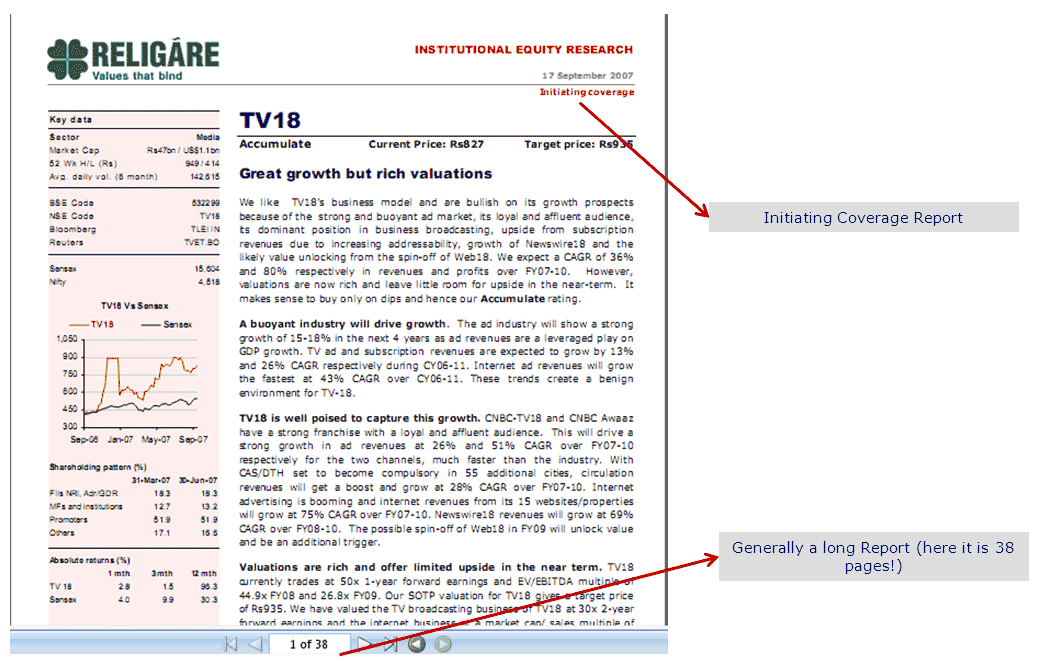Within the current rapidly evolving monetary environment, grasping equity analysis is more than a luxury but a necessity for investors looking to make informed choices. With equity exchanges continuously in flux, individuals and corporations alike are searching for the knowledge of equity analysis specialists to maneuver through the intricacies of investment opportunities. equity research report have the training and experience to evaluate companies, evaluate their potential for growth, and provide solid guidance tailored to different risk appetites.
Equity evaluation goes beyond simple calculation; it involves a thorough examination into a company's core metrics, market trends, and sector changes. Through leveraging the knowledge of professionals, investors can spot mispriced stocks and seize opportunities that may otherwise go unnoticed. Whether you are a veteran investor or just starting out, utilizing the skills of equity analysis specialists can be a game changer in your investment strategy, helping you make choices that align with your monetary goals.
Understanding Equity Analysis
Equity evaluation is a detailed approach to evaluating a company's stock to determine its potential for investment. It entails examining financial statements, market conditions, and economic indicators to assess a company's efficacy and prospective growth opportunities. By grasping the essential components of a firm, equity analysts aim to provide perspectives that can help investors in making informed decisions.
One critical aspect of equity analysis is the assessment of a company's financial health. Analysts measure multiple metrics such as earnings per share, price-to-earnings ratio, and return on equity. These indicators help investors grasp how well a company is producing profit relative to its revenue and how effectively it is using its assets. Furthermore, patterns in these metrics over periods can point to the consistency or volatility of a company's financial position.
Beyond financial metrics, equity analysis also incorporates non-numeric factors such as the effectiveness of management, industry position, and competitive landscape. Analysts consider how external factors, including regulatory changes and market shifts, may influence a company's operations. This holistic approach not only helps identify undervalued stocks but also provides a more detailed picture of the risks and rewards connected with potential investments.
Key Metrics and Ratios
As conducting equity analysis, understanding key metrics and ratios is essential for assessing a company's fiscal well-being and performance. One of the key ratios is the price-to-earnings (P/E) ratio, that compares a company's current share price to its earnings per share. A elevated P/E ratio may suggest that investors foresee future growth, while a lower P/E could indicate that the stock is undervalued or that the company is facing challenges.

Equity analysis specialists leverage this ratio to identify potential investment opportunities and assess whether a stock's price is warranted by its earnings.
An additional crucial metric is the return on equity (ROE), that measures a company's ability to generate profit in relation to shareholders' equity. ROE indicates how efficiently management is utilizing the equity invested by shareholders to generate profits. A consistent or increasing ROE is a favorable sign, signaling that a company is generating value for its investors. Equity analysts carefully monitor ROE trends as they evaluate a company's performance over time and contrast it against competitors.
In addition, analysts often employ debt-to-equity (D/E) ratio to evaluate a company's financial leverage and risk profile. This ratio compares a company's total liabilities to its shareholder equity, demonstrating how much debt is employed to finance its operations. A high D/E ratio may raise concerns about financial stability, especially in periods of recession. By evaluating these metrics and ratios, equity analysis specialists can provide valuable insights and help investors make strategic decisions in the market.
Effective Implementation Strategies
To successfully employ equity analysis specialists, start by precisely defining your investment goals and risk tolerance. Knowing what you aim to accomplish helps specialists customize their insights to meet your particular needs. Whether you are seeking extended growth, income through dividends, or a combination of both, communicating your goals allows for more focused analysis and recommendations. It is essential to create a collaborative environment where you can discuss your thoughts while also being receptive to expert advice.
Subsequently, set up a schedule for evaluating equity analysis reports and insights provided by your specialists. Frequent engagement with their findings not only enhances your understanding of market trends but also enables you to make well-informed decisions swiftly. Schedule specific times to review these analyses and contemplate discussing them with your specialists to clarify any questions. This kind of proactive approach guarantees you stay aligned with your investment strategy and market movements.
Finally, incorporate the insights gained from equity analysis into your broader investment strategy. Use the information acquired from specialists to make adjustments to your portfolio as needed. When specialists identify potential opportunities or risks, assess how these align with your overall strategy. This responsive relationship can lead to more intelligent decisions and ultimately better investment outcomes, securing that you leverage the full potential of comprehensive equity analysis.
